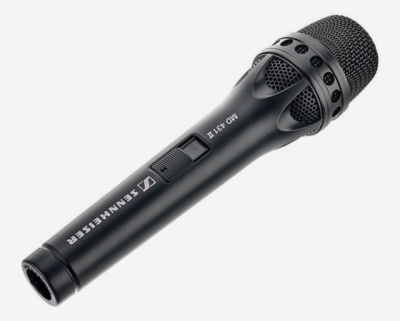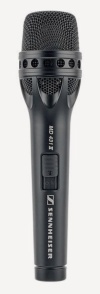Sennheiser MD 431-II
Contents
The Sennheiser MD 431-II is one of my favourite microphones for noisy stages when I’m dropping in for a guest set and I don’t have control of the sound system. It lives in my guitar case so I always have it handy.
It has a cutoff switch, which means that (when turned off) you can connect it silently to a live microphone cable. There are no noisy popping sounds. When you turn it on, the switch is silent.
It’s great when I need to cut through the mix and get maximum gain before feedback. You use the close mic technique (basically “eat the mic”) and it remains clear, never muddy.
It is slightly hotter than a Shure SM 58 (often what I’m replacing with the MD 431-II), but since it has a super-cardioid polar pattern, it does not tend to feed back when swapped in.
As you should expect from a super cardioid microphone, you want to sing directly into it. When you do, you are well rewarded. It has a lift in the upper midrange and details in the highs that are articulate and clear without being overbearing. This also helps me to project, compete, and be heard in a busy stage mix. <!—- See how it compares with other dynamic microphones in my microphone shootout. —>
|
This article expresses my opinion and experience. Please post comments to X/Twitter @ST_Muso or LinkedIn @STPro. Thank you — ST. |
Sennheiser MD 431-II
| Web page | Sennheiser MD 431-II |
| Type | Dynamic |
| Polar Pattern | high-rejection Supercardioid |
| Specifications | Sennheiser MD 431-II Specifications] |
| Instruction Manual | |
| Quick Guide | Sennheiser MD 431-II Quick Guide] |
| ToneMatch Preset | Vocal Microphones / Flat, Vocal zEQ OR Vocal Microphones / Sennheiser e 855 Vocal Microphones / Sennheiser MD 431-II |
| Introduced | 2005 ($549 USD) |
| Press Release | |
| Special Features | On/Off switch |

